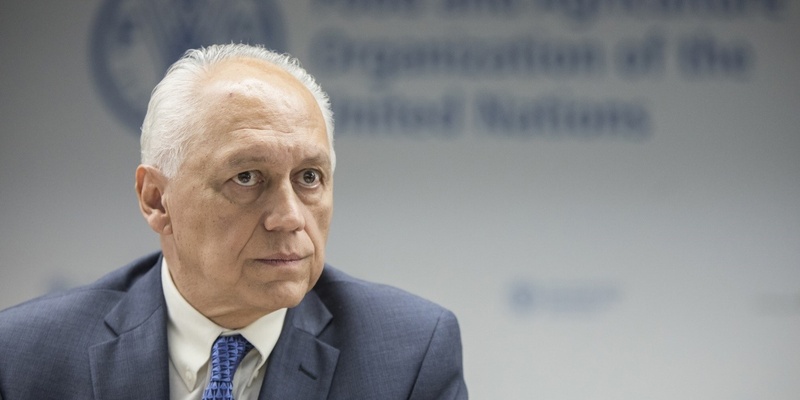Adapting to a changed world: Interview with the CPM Chairperson
Posted on Fri, 12 Mar 2021, 15:30

©FAO/ Giulio Napolitano
Mr Francisco Javier Trujillo Arriaga is the International Plant Protection Convention (IPPC) contact point for Mexico and Director-General of the SPS agency of Mexico, Senasica. Since 2018, he serves as the Chairperson of the Commission on Phytosanitary Measures (CPM), the governing body of the IPPC responsible for adopting international standards for phytosanitary measures. The fifteenth session of the CPM that will take place next week will conclude Mr Trujillo’s exceptionally three-year long term as the CPM Chairperson, a period in office full of successes and challenges. “Maintaining the continuity of the work of the CPM during the last year was a challenge”, he admitted. During the last year of his tenure, Mr Trujillo was faced with an unprecedented global crisis whose effects have inevitably affected the work of the global plant health community.
“Responsibility and adaptability are the key words to effectively manage the COVID-19 crisis and overcome this unique moment we are living in”, he stated. However, despite all the challenges it brought, for the CPM chairperson the COVID-19 outbreak has contributed to raising global awareness of the sanitary (and phytosanitary) risks associated with the international movement of people, and the importance of adopting preventive measures to mitigate and contain virus dispersal to new areas. In a globalized world where the volume of people, goods and vehicles moving around is growing at a high pace, without considering the potential effects of climate change on pests’ life cycles and dispersals, the risks for plant health are an increasing concern. “By preventing the spread and introduction of plant pests and diseases worldwide, governments, farmers and other actors in the food chain - such as the private sector - will ensure access to quality food and avoid losses of billions of dollars”, stressed Mr Trujillo.
Adopting mitigation measures is key to limit the sanitary and phytosanitary risks associated with international trade and travel. Yet to do so, it is necessary that national actions take account of “standardized policies and international mechanisms implemented at the regional and global levels”. Not only do we live at the time of the pandemic and the global sanitary emergency, but also in the era of massive digitalization, the technological revolution, new trade agreements and pathways, and the environmental crisis. In this new scenario, international cooperation and harmonization of actions is essential. To adapt to this new situation, Mexico has started accepting electronic phytosanitary certificates to keep guaranteeing safe food supplies during the COVID-19 crisis, explained Mr Trujillo. “In a completely digitized world, where digitization is not only about technology, but also about changing people's mindsets, electronic certification is a reality”, he added.
Reflecting on the three major accomplishments of Mr Trujillo’s term, he reported: the proclamation of the International Year of Plant Health, which “has finally recognized the importance of healthy plants in achieving the 2030 Agenda for Sustainable Development”; the progress with electronic certification, which the CPM encouraged since 2011; and the increase of IPPC budgetary resources from the FAO regular programme. “For many years the IPPC Secretariat struggled to achieve sustainable funding to carry out its work. Today, this additional allocation will allow the IPPC Secretariat to assist the IPPC community in developing phytosanitary standards for commodities and pathways, digitizing phytosanitary certificates, implementing IPPC standards and providing capacity development”, he added.
The CPM Chairperson said: “Each National Plant Protection Organization must have the operational, economic and scientific capacity to be attentive and updated on the phytosanitary risks, to detect pests in a timely manner, and to subsequently establish containment and eradication actions of the pests”. Finally, Mr Trujillo recognized the CPM as the only global forum entitled to address those crucial challenges. “The adoption of the new IPPC Strategic Framework 2020-2030 will certainly help set up new priorities and facilitate the transition towards this globally mutated scenario”, he concluded.
More on the upcoming Fifteenth Session of the Commission on Phytosanitary Measures at the following link: https://www.ippc.int/en/cpm-sessions/cpm-15/

